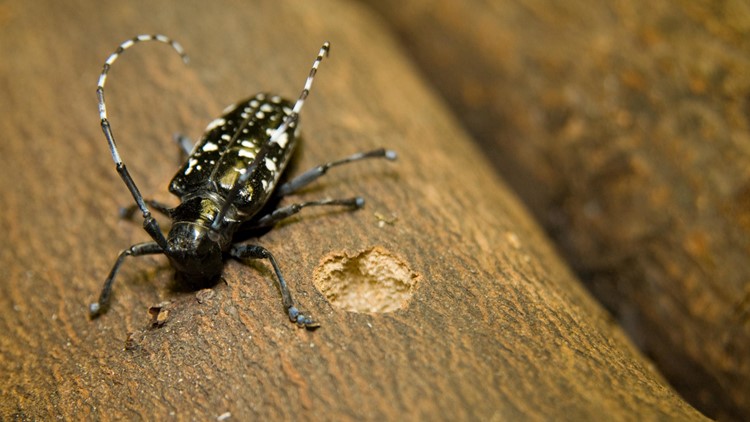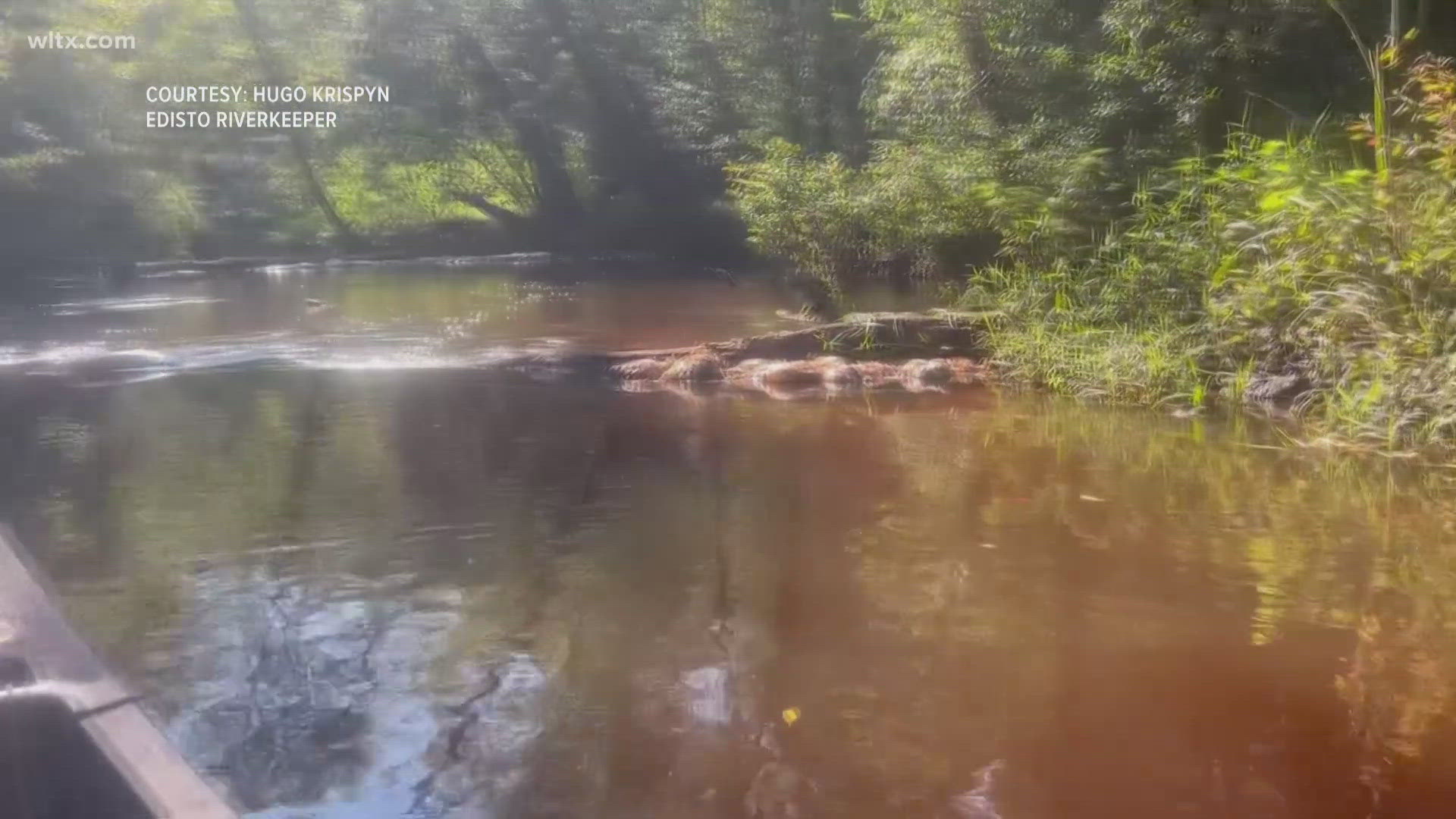COLUMBIA, S.C. — There's a bad bug out there -- an invasive species of wood-boring beetle that is responsible for damaging and killing hardwood trees throughout North America -- and it's been found in South Carolina.
About 12 species of hardwood, and piles of firewood, are host material for the Asian Longhorned beetle (ALB), causing the tree to weaken and become a safety issue or even the death of a tree.
The US Department of Agriculture is asking residents of South Carolina, particularly Charleston and Dorchester counties to check their trees for signs of ALB infestation and to limit the movement of ALB-host materials such as firewood. August is the prime time of the year to spot the beetle because adult beetles are active and have distinctive markings.
What to look for -- adult beetles:
- A shiny black body with white spots that is about 1” to 1 1/2” long.
- Black and white antennae that are longer than the insect’s body.
- Six legs and feet that can appear bluish in color.
Signs that a tree might be infested include:
- Round exit holes in tree trunks and branches about the size of a dime or smaller.
- Egg sites that are shallow, oval or round wounds in the bark where sap might weep.
- Sawdust-like material called frass found on the ground around the tree or on the branches.
- Branches or limbs falling from an otherwise healthy-looking tree.
If you see signs of ALB, you can help stop infestations by:
- Report it: Try to photograph the ALB or tree damage. If you can, capture the beetle in a durable container and freeze it, which helps preserve the insect for identification. Then report it by calling the ALB hotline at 1-866-702-9938 or submitting an online report at www.AsianLonghornedBeetle.com.
- Reduce spread: If you live in an ALB quarantine area -- this year defined by USDA APHIS as Massachusetts, New York, Ohio, and South Carolina -- please keep the tree-killing pest from spreading. Follow state and federal laws, which restrict the movement of woody material and untreated firewood that could be infested.
- Infested trees can be removed at no cost to property owners. However, people living and working in quarantine zones may not move regulated items, such as firewood (from all hardwood species), nursery stock, woody debris (dead or living), and green lumber from all ALB host trees, out of the area without a compliance agreement, permit, or certificate.
Trees that are at risk of ALB-infestation include: maple, elm, willow, birch, poplar, buckeye / horsechestnut, ash, sycamore, mimosa, goldenrain tree, katsura, and mountain ash.
Currently, 288.4 square miles are under federal quarantine for ALB in the United States: 110 square miles in Worcester County, Massachusetts; 53 square miles in central Long Island, New York; 49 square miles in Clermont County, Ohio; and 76.4 square miles in Charleston and Dorchester counties, South Carolina. For more information about the beetle and program activities, please call the ALB toll-free hotline at 1-866-702-9938 or visit www.aphis.usda.gov/pests-diseases/alb.
A business or person wanting to move regulated articles out of the quarantine zone may: (1) enter into a compliance agreement with the program and obtain the needed permit or certificate for those articles, or (2) request that program staff inspect the articles and directly issue the needed permit or certificate. To register for free compliance training in South Carolina, call 843-973-8329.
For more information about the ALB and the eradication efforts, visit www.AsianLonghornedBeetle.com. For local inquiries or to speak to your USDA State Plant Health Director, call 1-866-702-9938.



